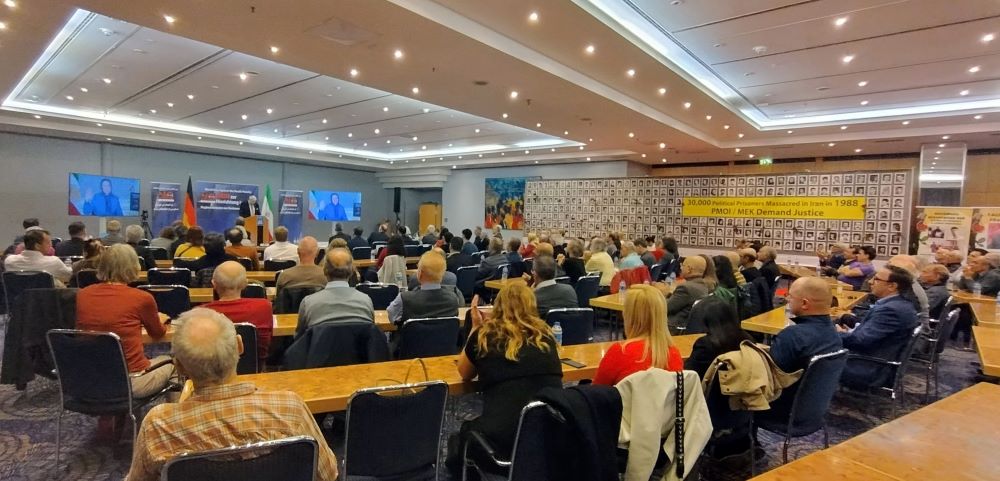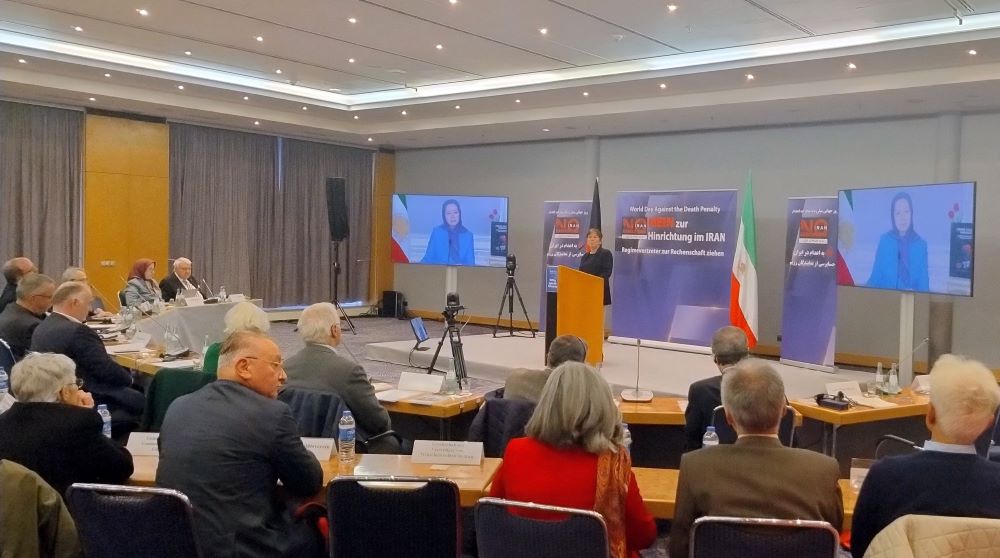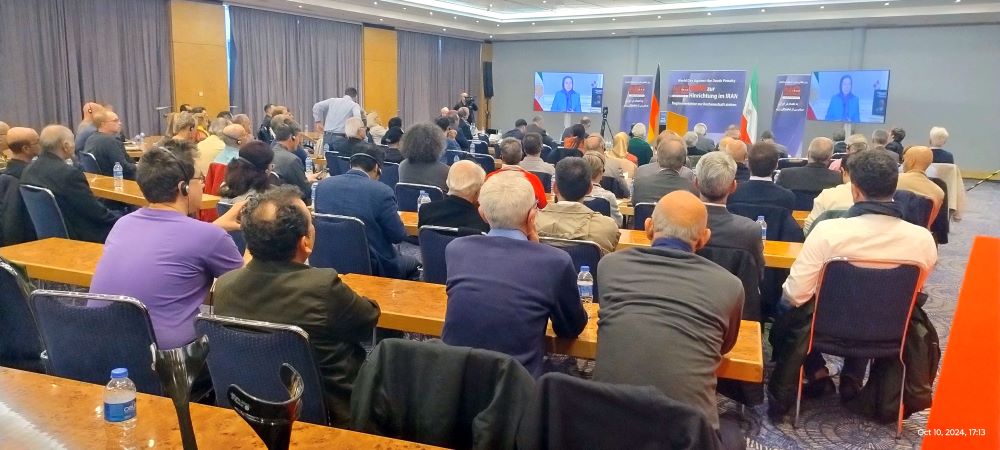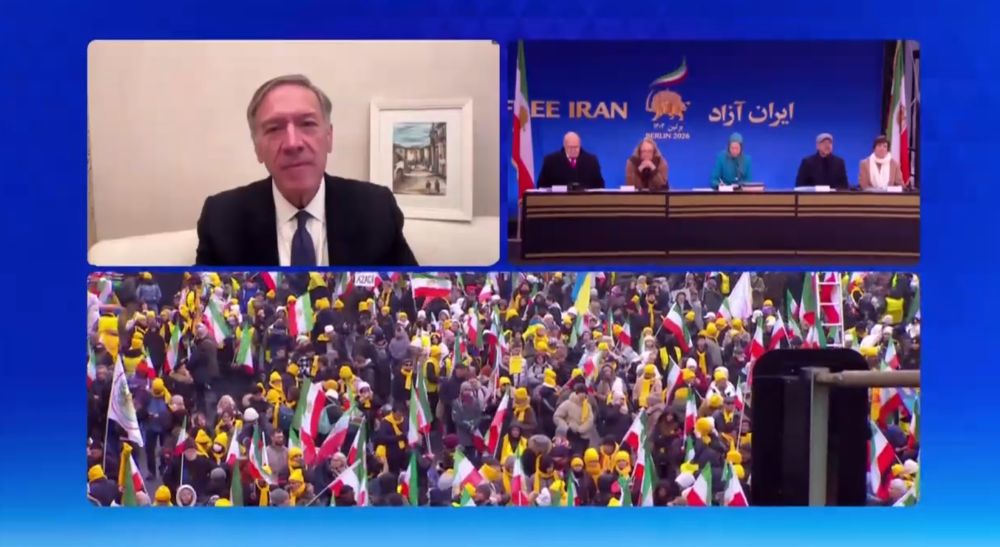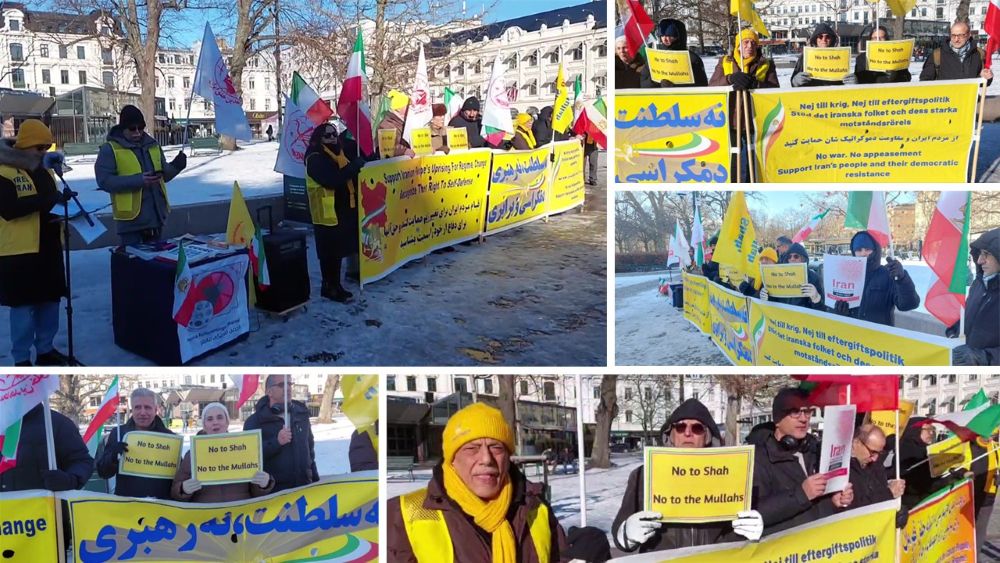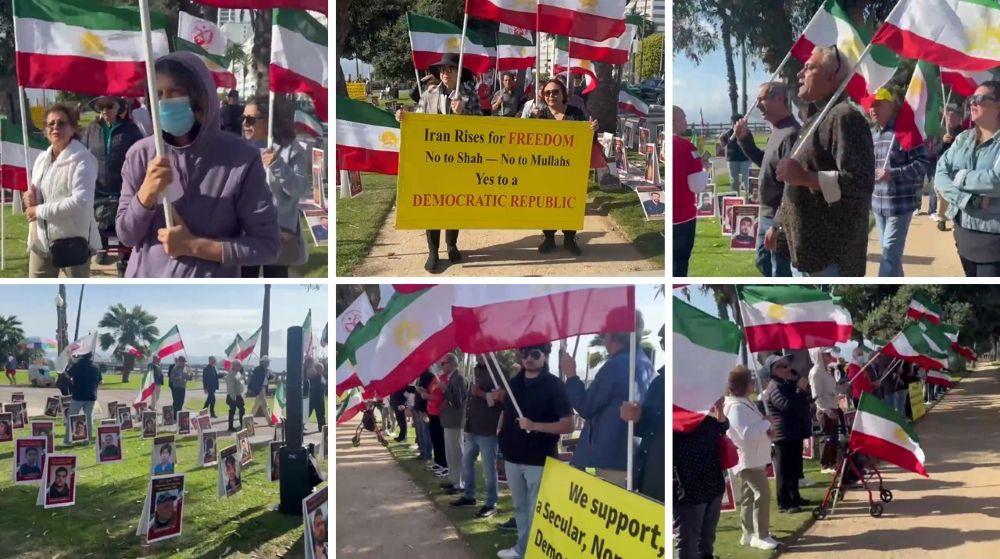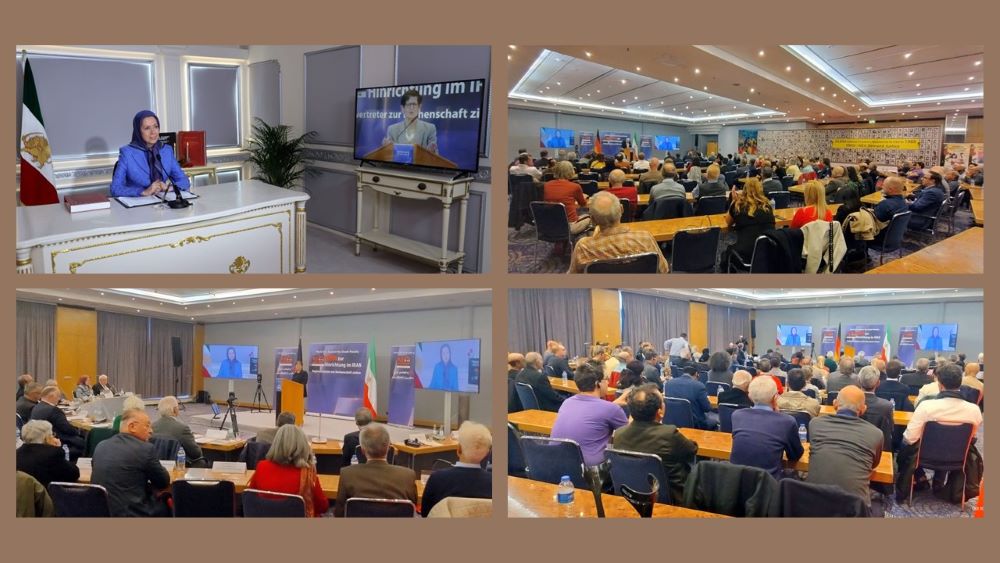
On October 10, 2024, German politicians, legal experts, and human rights advocates convened in Berlin to oppose Iran’s widespread use of the death penalty and advocate for fundamental changes in the country. The gathering, which was attended by a number of prominent figures, expressed solidarity with the Iranian Resistance and urged the international community to take immediate action.
Key figures at the event included Bundestag member Thomas Lutze, former Bundestag President Prof. Dr. Rita Süssmuth, Deputy Mayor of Berlin Detlef Wagner, former Bundestag member Martin Patzelt, former German Ambassador to Korea Dr. Hans-Ulrich Seidt, and Honorary Chairwoman of the Society for Human Rights Katrin Bornmüller.
A central focus of the event was a speech by Mrs. Maryam Rajavi, President-elect of the National Council of Resistance of Iran (NCRI), who called for accountability for the Iranian regime’s human rights abuses.
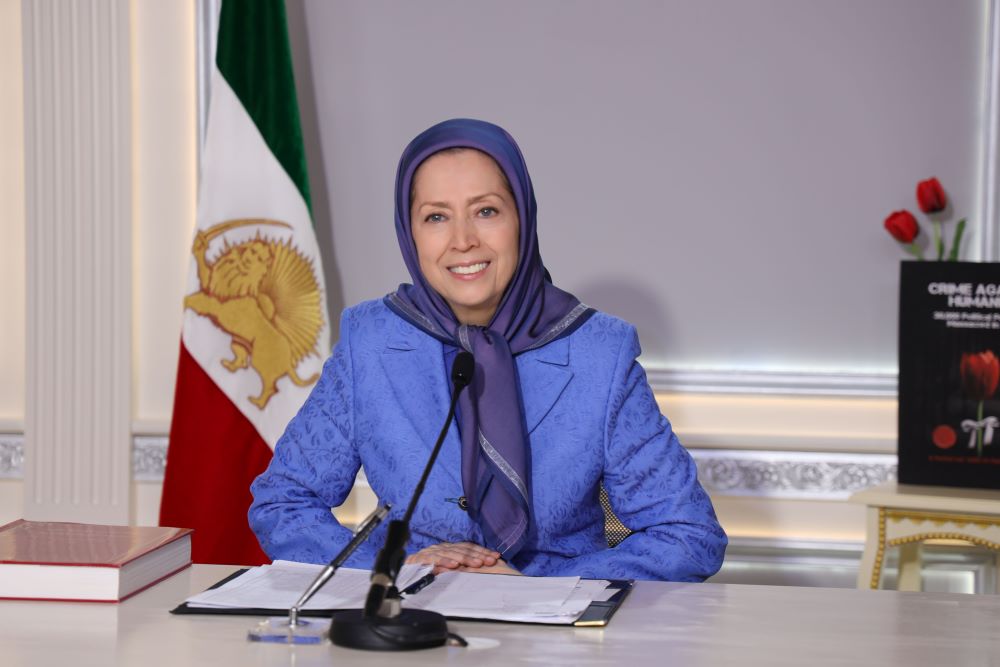
Maryam Rajavi, President-elect of the NCRI:
Mrs. Rajavi paid tribute to the countless individuals executed by the Iranian regime, condemning Iran’s leadership as the world’s leading executioner. “This regime holds the global record for executions, responsible for 74% of all recorded executions last year,” Rajavi noted. She criticized the institutionalized nature of these executions and the regime’s reliance on them for survival.
Mrs. Rajavi called for European governments to make their relations with Iran conditional on ending executions and terrorism, and urged for the IRGC and MOIS to be designated as terrorist organizations. She concluded with a tribute to political prisoners and their hunger strikes, reaffirming the unwavering dedication of the Iranian resistance.
Thomas Lutze, Bundestag Member:
Lutze, speaking on the severity of Iran’s human rights violations, highlighted the lack of awareness in Germany. “The extent of what is happening in Iran has not yet fully resonated with the German public,” he said. He also connected Iran’s role to broader geopolitical instability, noting that “Iran provides massive support to terrorist organizations like Hamas and Hezbollah.” Lutze emphasized the need for stronger action: “We must support the people of Iran in their fight for self-determination, and the death penalty must be abolished, starting with Iran.”
Professor Dr. Rita Süssmuth, Former Bundestag President:
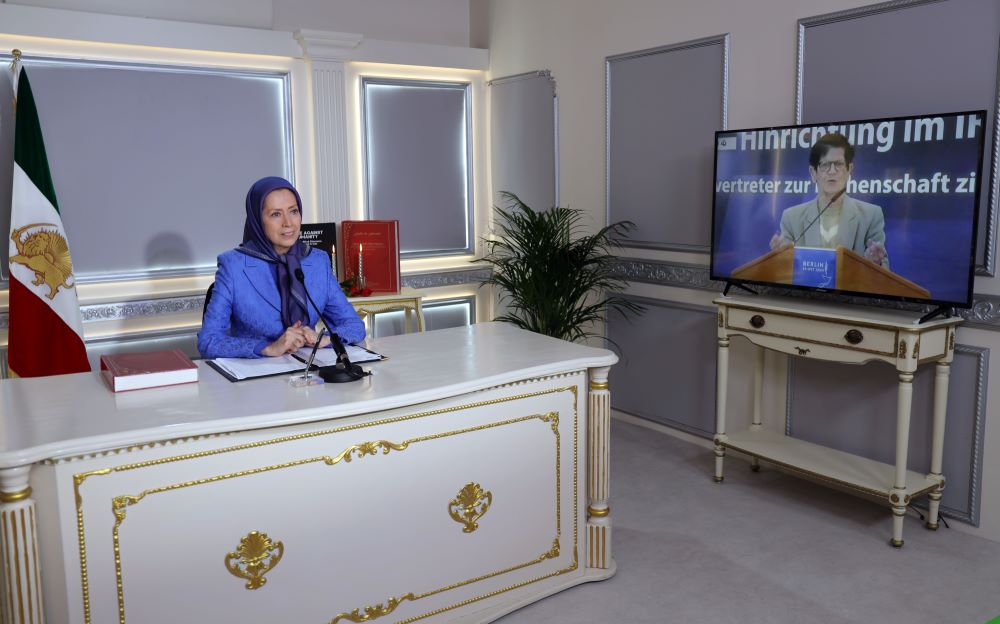
Süssmuth urged persistence in the fight against the Iranian regime, reflecting on the resilience of the Iranian people. “From the people of Iran, I have learned that the worst thing you can do is to give up on what you believe in,” she said, calling for sustained pressure on the regime and expressing hope for a future where the Iranian people are liberated. “We must continue this fight, even when it seems hopeless, because it has always been worth it.”
Leo Dautzenberg, Chair of the German Solidarity Committee for a Free Iran:
Dautzenberg welcomed attendees and highlighted the critical nature of the fight against the death penalty in Iran. He pointed out that “the mullah regime alone is responsible for almost three-quarters of all executions worldwide,” underscoring the urgency of international action. He also referred to Professor Javaid Rehman’s UN report, which calls for accountability of Tehran’s leaders for crimes against humanity. Dautzenberg praised Rajavi’s Ten-Point Plan, saying, “This plan provides a real opportunity to overthrow the religious dictatorship in Iran.”
Detlef Wagner, Deputy Mayor of Berlin:
Wagner drew attention to the impact of Iran’s regime on the region, stating that the ongoing violence in and around Iran is deeply concerning. “If there is no regime change in Iran, we will continue to see these horrifying images,” he said. Wagner emphasized the importance of the NCRI’s work and Rajavi’s transparent plan for Iran’s future, stating that “only a united resistance and tireless fight for human rights can bring about change in Iran.”
Dr. Hans-Ulrich Seidt, Former German Ambassador to Korea:
Seidt provided a historical context to Iran’s political development, explaining how foreign interventions have led to authoritarian regimes in the country. He stressed the role of the Revolutionary Guards (IRGC) and the Supreme Leader in controlling Iran’s political institutions. “Iran and its people are searching for change,” Seidt said, calling for international efforts to focus on justice and the abolition of the death penalty, which has been a key part of German foreign policy.
Martin Patzelt, Former Bundestag Member:
Patzelt spoke about the decades-long resistance against the regime, recalling the 1988 massacre, where 30,000 political prisoners were executed. “Ninety percent of these people were members of the MEK, who fought for a different path,” he said, emphasizing that the Iranian regime continues to target its opposition through disinformation. Patzelt called for solidarity with the Iranian people and support for the NCRI’s vision for a democratic Iran. “The Iranian regime’s lies must be exposed, and we must support the fight for a free Iran,” he concluded.
Katrin Bornmüller, Honorary Chairwoman of the Society for Human Rights:
Bornmüller spoke passionately about the dire situation in Iran, noting that since the inauguration of Iran’s current president, over 250 people have been executed. She emphasized that “these are not just numbers, but real human lives—people full of love and life.” Recounting her visits to Ashraf 3, home to thousands of members of the MEK in Albania, she praised the resilience of those who had endured years of repression under both the Shah’s and the mullahs’ regimes. Bornmüller concluded by urging German politicians to align with the movement for a free Iran and support the abolition of the death penalty.
